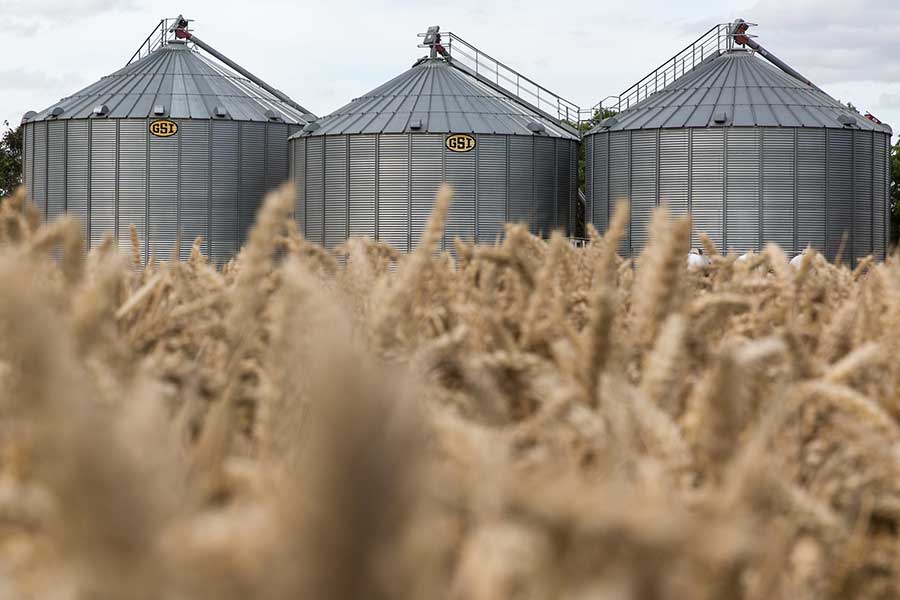Ukraine war: Wheat prices smash record highs
 © Tim Scrivener
© Tim Scrivener May 2022 UK feed wheat futures reached a record high of £294/t at midday on Friday (4 March).
This was up £63/t on week-earlier levels and markets remain particularly volatile.
Conflict in the Black Sea region between Russia and Ukraine continues to drive prices and market uncertainty.
See also: Input and output costs hit new highs as Ukraine crisis deepens
Ex-farm feed wheat prices collected by Farmers Weekly on 4 March averaged £275/t for March collection, up by £43/t in a week. Prices ranged from £255/t-£295/t.
Jonathan Lane, ADM Agriculture’s head of grain trading, said the huge volatility can be expected to continue.
Markets are trading higher as the ongoing situation between Russia and Ukraine prompts fears of severe shortages of exportable wheat.
Mr Lane said: “Ukrainian ports will stay closed until the invasion ends and maritime security can be restored.
“Continued uncertainty over events and their effect on Black Sea grain exports, along with potential export washouts and invoking of force majeure clauses, continue to support the markets.
“Exporters and buyers are rushing to book EU supplies to replace lost Ukrainian exports.”
Spring wheat plantings in both Russia and Ukraine could be impacted by the conflict.
Oilseeds
Paris rapeseed futures (Matif) stood at €823/t (£679.39/t) for May 2022 at 12pm on 4 March, up by €93/t (£76.77/t) on week earlier levels.
Ukraine has closed ports which have an estimated 15.1m tonnes of maize left to export, according to United Oilseeds.
Will Ringrose, ADM Agriculture’s head of oilseeds, said: “Daily trading ranges have been the largest ever seen. Black Sea supplies remain a concern, especially of sunflower oil for old and new crop.
“Old crop logistics are being affected and new crop planting is likely to be delayed or postponed. Markets will remain extremely volatile until the trade figures out a way to solve the void.”
Impact on plantings
Anthony Speight, senior analyst at AHDB, said Ukraine and Russia collectively account for 10% of global major oilseed production and more than 76% of global exports of sunflower oil.
Mr Speight said: “If Ukraine’s sowing window is compromised, it will likely have an impact on global vegetable oil prices.
“In turn, an impact on global vegetable oils will inevitably affect rapeseed too. If Ukrainian sunflower plantings are compromised, we could see a bullish market sentiment continue across oilseed markets as a whole, into the 2022-23 marketing year.”
